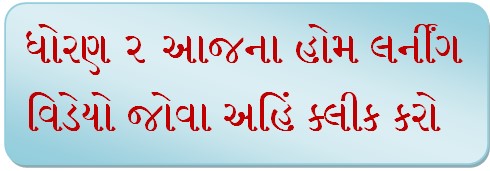HOME LEARNING DAILY VIDEO DATE :- 19/2/2021.
2020 has been a difficult year academically as children across the planet have had their studies disrupted thanks to the extended closure of faculties due to the pandemic. In India, the effect has been particularly severe with complete lockdowns ensuring that the youngsters had no recourse to any of their support systems including schools, teachers, tuitions or group studies. In such a scenario, online education has been propagated because the solution both by private schools also because the governments (Centre and state). The system is functioning beautifully for youngsters with well-resourced parents especially in urban areas, but the underprivileged children in rural hinterlands where the majority of our student population resides, are left woefully behind.
Discussions on counselling, patient safety, ethical dilemmas in our Ophthalmic practice which are usually caught by students while seeing the school on the work can now be taught in these virtual classrooms. Many effective online teaching strategies are available for free; for example: “Building a Community of Learning (Southern New Hampshire University)”.
The government has been touting online classes as a viable alternative, but unequal and patchy access to the web has meant the experience is vastly different counting on location and household income.
According to a National Sample Survey report, 90 lakh students studying within the country's government schools haven't any facility for online education. 24 percent of households are connected to the web through smartphones, and only 11 percent have a computer with an online connection, while things in rural India is worse.
Unified communication and collaboration platforms like Microsoft Teams, Google Classroom, Canvas, Blackboard allow the teachers to make educational courses, training and skill development programs.[ They include options of workplace chat, video meeting and file storage that keeps classes organised and straightforward to figure . they typically support the sharing of a spread of content like Word, PDF, Excel file, audio, videos etc. These also allow the tracking of student learning and assessment by using quizzes and also the rubric-based assessment of submitted assignments.
Along with several researchers, i'm engaging with families across the country who are sharing stories about how they're supporting their children with education needs while schools are closed.
IMPORTANT LINK TO WATCH TODAY HOME LEARNING VIDEO::
Let us examine the prerequisites for online education for a toddler . the primary and foremost requirement is access to the web . Second, there's a requirement for an appropriate device to render the content. Third, the content itself should be of such a top quality that the kid should be ready to grasp it remotely. Fourth, the resources to realize access to a number of supplementary learning material available online. Lastly, the power of oldsters to support their child in online learning through technical also as pedagogical support











No comments:
Post a Comment